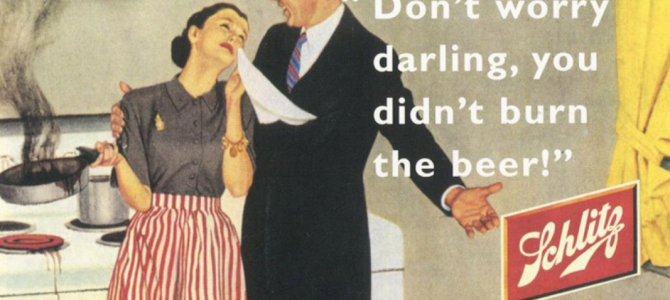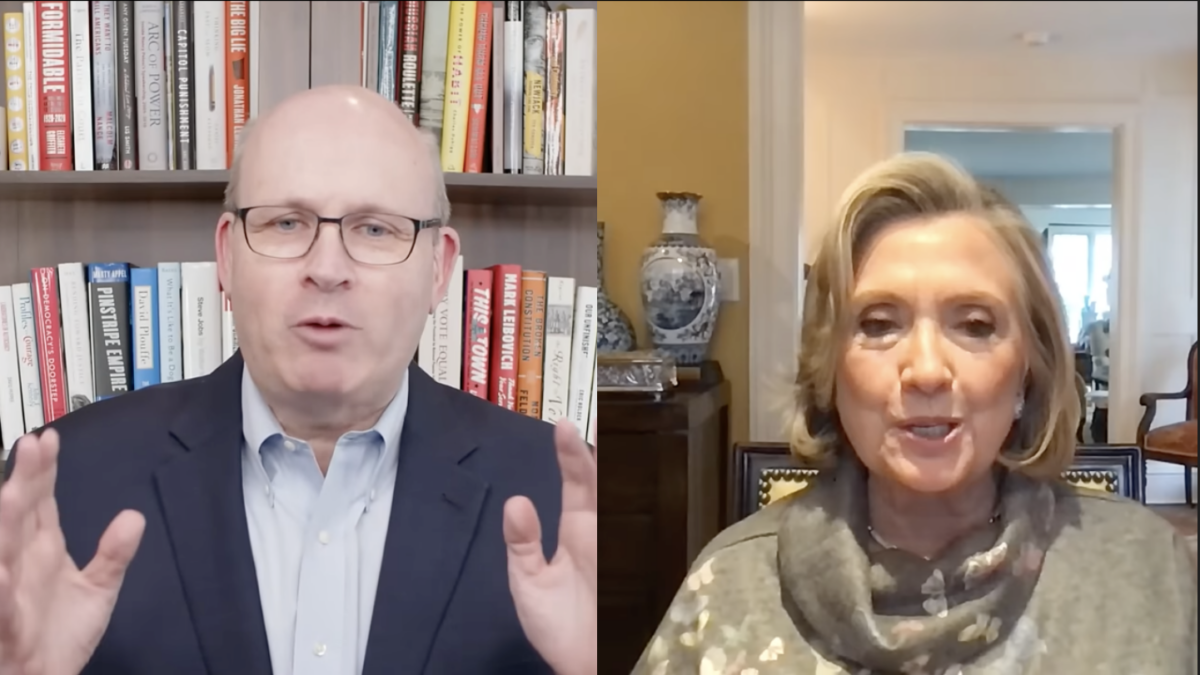
Speaking to a modern feminist can sometimes cause you to witness a brand of paranoia that is remarkable in its fervency. There is, for instance, a widespread belief amongst the ranks of latter-day feminists that women make only so much money for doing “the same work” as compared to men—ranging from fifty to eighty cents on the dollar—even if this statistic is empirically false. Yet it is not empiricism that informs so much of today’s feminism, but a dogged certainty that American women are constantly on the verge of, or even completely under, wholesale oppression and subjugation by “the patriarchy,” which is generally defined as anything that offends a feminist.
It is certainly fair to admit that the belief of looming patriarchal suppression may be accurate, at least if we are willing to concede that progress is not inevitable and regression is not impossible. Good things do not simply happen, and they do not simply remain invariant. It is not unthinkable, for instance, that the strain of democratic self-governance that has defined the West for several centuries may one day give way to autocratic despotism, if only because human institutions are largely fleeting and to establish and preserve a certain way of life requires a conscious act of will and the foresight to understand that what is, may not always be. Just ask the Romans of the 5th century, or the Americans of the mid-22nd.
We can at least appreciate, then, that today’s feminists might have the aforementioned foresight to recognize that the hard-won victories of the past are not sufficient to ensure the inalienable rights of the present or the future, even if those “rights” hinge upon forcing religious craft store owners to pay for one’s oral contraceptives. Yet the rhetoric used to bolster this foresight is so often given to comical extravagance that one is hard-pressed to take it seriously. For the average feminist of today, one of the greatest threats to a woman’s well-being and individual self-determination is a “return” to “the 1950s.”
Rockabilly subculture notwithstanding, it is probably the case that virtually nobody, even white men, wishes a literal return to the conditions of the fifties, if only because the decade was utterly bereft of the modern conveniences upon which modern society is built: cell phones, the Internet, an abundant selection of cheap material goods and consumer choices that have enriched our lives in ways only dreamed of sixty years ago. The feminist argument, of course, is that “The Patriarchy” desires a return not to the material deficiencies of the time but to the popularly-held social mores and conventions of mid-twentieth century America: docile housewives, male hegemony in the workplace, a tidy suburban existence with a white picket fence, two well-behaved children—all the customs that symbolized postwar domestic tranquility in the United States and placed men as the uncontested leaders of home and office.
Perhaps there are a few backwards politicians and pundits who would desire a figurative return to the gender-inequitable halcyonian bliss of that iconic decade; moreover, it certainly is worth pointing out that such a return would undo the great deal of political and societal progress since those days—the breaking of the glass ceiling, the Civil Rights movement and the subsequent progress in race relations, the innumerable ways in which mass media have allowed us to hold our elected officials more accountable. From the perspective of this millennial, the 1950s seem irritatingly quaint, retrograded, stifling and boring, to say nothing of the reactionary nature of its civil society and its—forgive me—squareness. Yet the hostility that many feel in regards to the 1950s can increasingly be seen taking the place of rigorous thinking from today’s feminists and those in thrall to modern feminist thought.
The anti-50s rhetoric arises whenever Republicans or conservatives say anything about women, particularly in election years. During the 2012 presidential race, Planned Parenthood president Cecile Richards claimed that Mitt Romney “literally [wanted] to take women back to the 1950s.” Literally! Earlier this year, in response to Mike Huckabee’s “libido” speech, Richards again cautioned us that there are “out-of-touch politicians [who want] to take us back to the 1950s.” President Obama, never one to miss a cue from Planned Parenthood, accused Romney during the election of advocating for a “social policy of the 50s,” (whatever that means). Later, speaking in front of the esteemed abortion provider, Obama declared that “there’s still those who want to turn back the clock to policies more suited to the 1950s than the 21st century.” On the subject of contraception, an ad by the Obama campaign boldly announced, “This is not the 1950s.” In part because they so badly failed at capturing women’s votes, Eugene Robinson suggested Republicans had run “a campaign that would have been perfectly appropriate for the 1950s.” Chris Matthews at the time claimed that Mitt Romney spoke “almost in a 1950s pre-Mad Men era, if you will, about men and women in the workplace.” Retiring from office, Sen. Olympia Snowe felt that the debate over the contraception mandate was “a retro-debate that took place in the 1950s…It’s sort of back to the future, isn’t it?” (One understands the joke, but technically it would be back to the past.)
The list continues, and assuredly anyone who has debated women’s issues with a militant feminist has been witness to a thoughtless remark about “the 1950s.” It is a dumb and extraneous bludgeon to use in arguments related to birth control and abortion; the issue regarding the contraception mandate, for instance, is not whether we should “return to the 1950s” but whether or not it is ethical or constitutional to force people to pay for other peoples’ birth control. Similarly, debating the morality of abortion has nothing to do with the fifties and everything to do with whether killing an unborn child should be legal or not, and whether or not we should support the killing of unborn children with taxpayer dollars. These are vital political and philosophical questions, and ginning up fears about “the fifties” is a great way to avoid actually engaging the issue; it works, presumably, because the 1950s are so visceral and stand out so clearly in Americans’ minds—the gleaming chrome and aggressive schmaltz of the time are recognizable to any American, as is the tiresome trope that feminists invoke whenever the argument gets difficult.
In their frantic phobia of the fifties, today’s gender warriors also miss the obvious: the decades and centuries before the fifties were just as bad, or much worse, for women. The world was not a gender-equity paradise up to the fifties; for most of human history women have been oppressed, enslaved, relegated to second-class citizenship and denied basic, fundamental rights. The fifties did not create sexism or rigidly-stratified gender roles, and in any event it would be far more frightening to contemplate a return to the 1850s, or even to 1900, than to the kitsch-infused decade of which feminists live in constant terror.
The fear of the past is useful in stoking the fires of the present, and it is often most useful in the hands of progressives: if we de-regulate anything then we’ll re-experience the Great Depression, if we cut government spending we’ll see the end of meat inspection and we’ll go back to The Jungle, if we don’t raise the minimum wage then there will be a second Gilded Age. “The fifties” is a handy device to invoke if you’re trying to get some inane feminist point across—it is the epochal equivalent of a useful idiot—in part because everybody knows what it means when the term is used. So what if it is employed to avoid actually engaging in honest and intelligent debate? You don’t want to go back, do you?
Daniel Payne blogs at Trial of the Century. You can follow him on Twitter.









